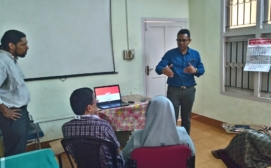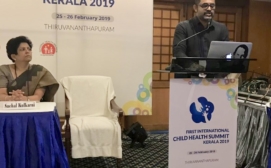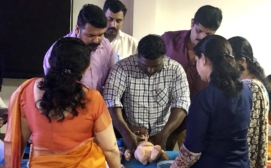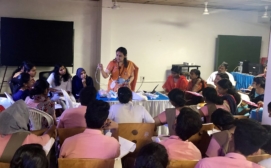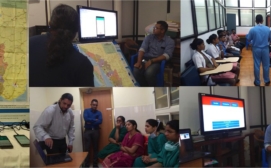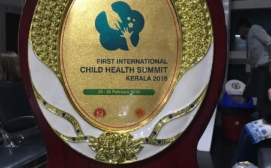
More Training Sessions
Project Lead(s): Mahesh Kappanayil
Issue
The transport of critically ill neonates in LMICs is poorly structured and monitored. This has created a ‘blind spot’ in the clinical care of newborns.
This issue has been evident in India, where a lack of capacity for clinical care during transport between health facilities poses a high risk of complication for already vulnerable neonates.
Solution
The Amrita Institute of Medical Sciences created a novel technological innovation called NeoPORT in order to convert the 'blind spot’ of transport into a well monitored and guided process.
NeoPort was a triple-interface mobile application that connected all three stakeholders in the transport process via a communication platform. Stakeholders included the “Sending” facility, “Receiving” facility, and the Transporter themselves.
The mobile app utilized clinical checklists, real-time monitoring of patient vitals and location, built-in chat and call functionalities, and risk-scoring systems. These features allowed clinical staff to monitor the health of neonates and collaborate with transport staff.
Outcome
In the test-phase, 78 newborns and 5 infants were transported and monitored using the NeoPORT system.
In 76% of transports, remote monitoring of neonatal vitals and GPS worked effectively. In the other 24% of transports, network issues caused transient data blackouts.
In almost 20% of cases, remote management advice was provided to Transport staff alerting them of a shift in patient health status. In multiple cases, the system provided the transporter with clinical advice regarding medications and temperature control.
The project improved teamwork among health workers and enhanced patient safety. Additionally, hospitals were better equipped to create treatment plans for patients.
NeoPORT hopes to continue to grow as more clinical data is compiled and analyzed.

